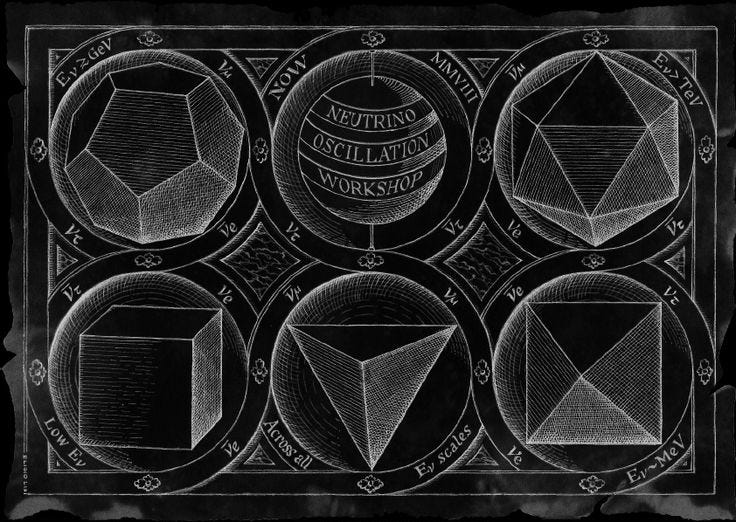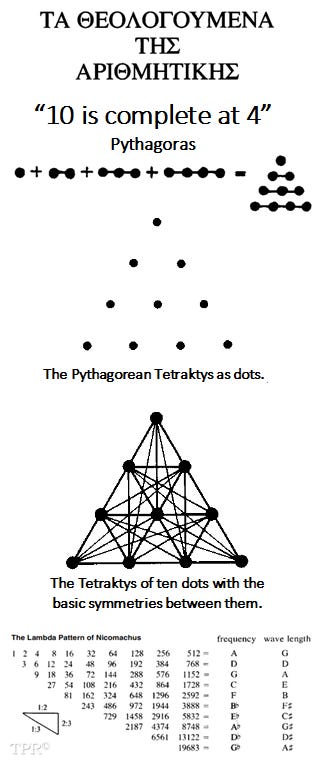A man who talks to cats and a man who builds robots. These are private reflections of such a man, not Church documents or official theological positions. They are put online for discussions and will be regulary updated. If you take them serious, that is on you, however, if you do so, you’ll see that we can have a lot of fun! This is the greatest invention of them all, communication, using the best biological tool, reflection.
Introduction
Today, let’s look at a conversation about essences. Firstly, when we speak of an “essence,” we refer to what it means to be a certain thing. I hold it to be paramount in philosophy to keep in mind that one seeks to employ abstract formulations of real things if possible; thus, although the term “essence” may seem abstract, I mean something directly experiential: What does it mean to be human? Or what does it mean to be a cat? Or a dog? Or a star? The common thread in these inquiries is “what does it mean to be this or that,” and that is the essence of a thing. The human essence is what it means to be human, the logos of human.
But what comprises the being of something, zoomed in further?
First of all, when speaking of essences, one adresses a categorical distinction between species or things, and by a categorical distinction one likely refers to the set of “qualitative elements”. A qualitative element is that which is most reducible in the construction of the phenomenal world or identity of an object. In relation to the “phenomenal world” of a human being, this appears to include, for example, thoughts, feelings and sensory perceptions; the body and metaphysical understanding could be included as aspects of the identity of a human being1. However, if one could reduce feelings to thoughts, for example by considering feelings as a class of thoughts and attributing both to the same basic notion, one that fully composes and explains both, these things would not be categorically different from each other, but would be different by composition only.
The conversation
Quasi: So essences are categorical distinctions, and categorical distinctions are composed by qualitative elements?
Justus: I would say so. The ability to feel sadness and the ability of sight are categorically distinct, for example.
Quasi: An Essence is the proper definition of a thing, yes?
Justus: Indeed. But it should be emphasized that I do not intend to construct an abstract sequence when discussing proper definitions. When I speak of definitions, I am always referring to what it means to be something. In the context of definitions within “logic” or “mathematics,” I am addressing processes in reality, which I represent abstractly, and not the abstract representation itself. A proper definition encapsulates what it truly means in reality to be something specific.
Quasi: So, in a way, definitions are constituted by qualitative elements?
Justus: Yes.
Quasi: Now, is “genus” a qualitative element?
Justus: The definition of genus is a qualitative element - so to speak. Indeed, every qualitative element is composed of more qualitative elements, unveiling that the preceding “element” was a set all along. Every definition is assembled from more definitions. I identify the ability to bundle a myriad of qualitative elements into one understanding with mathematical intuition. Thus, every definition relies on qualitative elements, but they themselves are not necessarily rationally describable, for they serve as the means of description when bundled per intuition.
Quasi: Why call this “qualitative”, as if it's a quality? Do you think genus is part of the genus of quality?
Justus: When I look into the meaning of genus, I see this:
“A taxonomic category ranking below a family and above a species and designating a group of species that are presumed to be closely related and usually exhibit similar characteristics. In a scientific name, the genus name is capitalized and italicized.”
Or “Genus is defined: a universal which is predicated of several specifically distinct subjects and which incompletely expresses their essence.”
I would take we speak of the second definition. In this context, all these words are defined by themselves and by the words used for their definition, until we exhaust existing vocabulary and necessitate the invention of new words. There is possibly an infinity of quality which composes every definition and the different infinities we understand only by our intuition, which is a noetic faculty2. The basic construction of the universe is the same, through the noetic faculty we have an understanding of an infinity of quality.
Quasi: An infinity of quality?
Justus: An infinite or myriad quantity of things that are nothing but themselves and, with a large number of combinations, result in an intelligible definition. By quality, I am talking about a meaning in-itself that does not arise from the set of other meanings, it is not contingent upon quantity. It is, therefore, that fundamental point upon which meaning quantities are built—thus, through intuition, we can comprehend a quantity of it as a rational definition.
Quasi: Why call that infinity of quality as opposed to infinite potency for intelligibility?
Johnathon: I think I'm tracking more with Quasi's suggestion of potency at the level of essence, and quality at the level of the expression of that essence [when actualized]. Quality, to me, implies expression or instantiation, and so it seems to me would not “exist” at the level of essence but downstream. [...] Well, but the qualities qua qualities wouldn't “exist” at the level of essence, but as potencies (if I'm tracking properly) and upon their expression would exist as qualities.
Justus: You are correct. Henceforth, I shall refer to them as potencies for intelligibility, which, when actualized, manifest as myriad genera3. I now perceive that the definition of genus differs from what the formal description intends to convey: a genus is simple, whereas the definition or formal expression of the term “genus” comprises multiple components, akin to any other definition, which collectively pinpoint the concept genus. Thus, I would assert the following definitions:
Essence: Intelligibility & specification: specification is by the set of intelligible elements, genera.
Essence if given existence: Universals & specification: a set of universals (qualities), which are actualized genera. Universals are what I called qualities.
Quasi: How about this:
Essence = proximate genus & specific difference
Essence being actualized into existence = an individual being a member of this constituted species (genus & difference)
The Solution
Justus: I have now become aware of another distinction between us, which is quite intriguing. As I suspected, the manner in which we utilize language mirrors our subconscious analysis of the world, and our definitions consequently stem from these subconscious mechanisms. It is essentially a difference in our perspectives on the world, rather than merely how we articulate facts about it. You approach things from the top-down, whereas I approach them from the bottom-up when it comes to definitions. Allow me to illustrate:
In your schema:
First we ask the question; is the entity considered a being (instead of beinghood itself) or rather: a creature? If yes: Proceed below. If no: God.
Is it bodily? If yes: Proceed below. If no: Spirit-creature, proceed with another string of questions.
Has it a perceptive? If yes: Proceed below. If no: Physical object, proceed with another string of questions.
Has it rationale/metaphysical understanding? If yes: Proceed below. If no: Animal, proceed with another string of questions.
Now, if the last question was answered “yes”, we arrived at humans (just as a rough sketch).
In my schema:
We first have an infinite or myriad number of genera resp, universals.
The set a of genera resp. universals composes the essence of “smell”, set n composes the essence of “sight”, set q composes the essence of “thought” etc.
A combination or super-set of a, b, c, d, e, f, g, h and i composes the essence of “animal”, another super-set composes the essence of “tree” etc.
If one adds to a, b, c, d, e, f, g, h and i the set of “metaphysical understanding” one now has the essence of man.
However, a problem persists within my framework: the inclusion of terms like “giraffe” or “deer” would seemingly add something to the essence of “animal,” thereby rendering them no longer “animal,” for the human essence also just adds to it. Consequently, the essences outlined in the third point are not yet species or kinds of things; they are merely building blocks for species or kinds of things. When one speaks of “animal,” it is not truly one essence but rather an abstract compilation of different essences that cannot be traced back to a single and common essence, such as the essence of a woodpecker or an anteater. One might then define “animal” as a set of essences that contain specific genera set A but do not contain specific genera set R, which, for example, are corporeal, possess perceptions, but lack metaphysical understanding. “Animal” would then serve as a formal summary of different essences that utilize the same building blocks (like any essence) but are inherently distinct from each other without being a specification of a prior essence, rather, they build upon a prior essence. One can also say, an animal is any essence that contains a specifc animal telos.
Synthesis
It is evident that within the Logos, some essences or proto-ideas are complex concepts, composed of genera. Therefore, even if one were to consider a tree in creation as merely the composition of its parts, it ultimately reflects its own logos. Additionally, it can be assumed that the hierarchy of logoi emanates from God, with Him at the apex, or nobility of perfections, which is why essences in the Logos inevitably proceed through specifications. Quasi has it right. Yet I dare to assert that in creation, the hierarchy is inverted, and particular notions are composed into complex entities. This inversion is only possible because through our nous, we have access to the Logos, the divine order of things. If this idea were correct, then God would truly, in a practical sense, bring creation into divine order through humanity, and this already in our everyday perceptions of things.
I welcome every comment and am eager to respond!
With sincere thanks,
~ Justus.
The term rationality I use here to refer to ability to link truths or ideas, putting 1 and 1 together. And sticking two sticks together to have a longer one falls under that, which is why ape-like creature seem to have some rationality as well, next to other animals. Me putting metaphysical ability and rationality on two sides of the distinction makes clear that I do not speak of rationality in the traditional sense that includes metaphysical understanding. Rationality is merely putting truths or ideas together, and metaphysical ability seems to be a movement from particular to essences (and essences to particular), which seems to correlate with a much greater rational ability.
At the end of the article I talk about nous.
Today, in actualized form I call them universals.







I loved reading this! I found it fascinating that you detected the difference of approach in defining 'essence' in a top-down vs. bottom-up manner in the conversation. In some sense, I think both perspectives have validity and describe two aspects of the relationship between essence and particular: emanation and emergence. It seems that, because essences are intelligible and being is hierarchical, we can trace the relations of a particular being's essences either from the top down or from the bottom up and have a coherent picture, but both directions, as it were, are involved in the particular being's actualization--a union of heaven and earth. I hope this is coherent. :-P